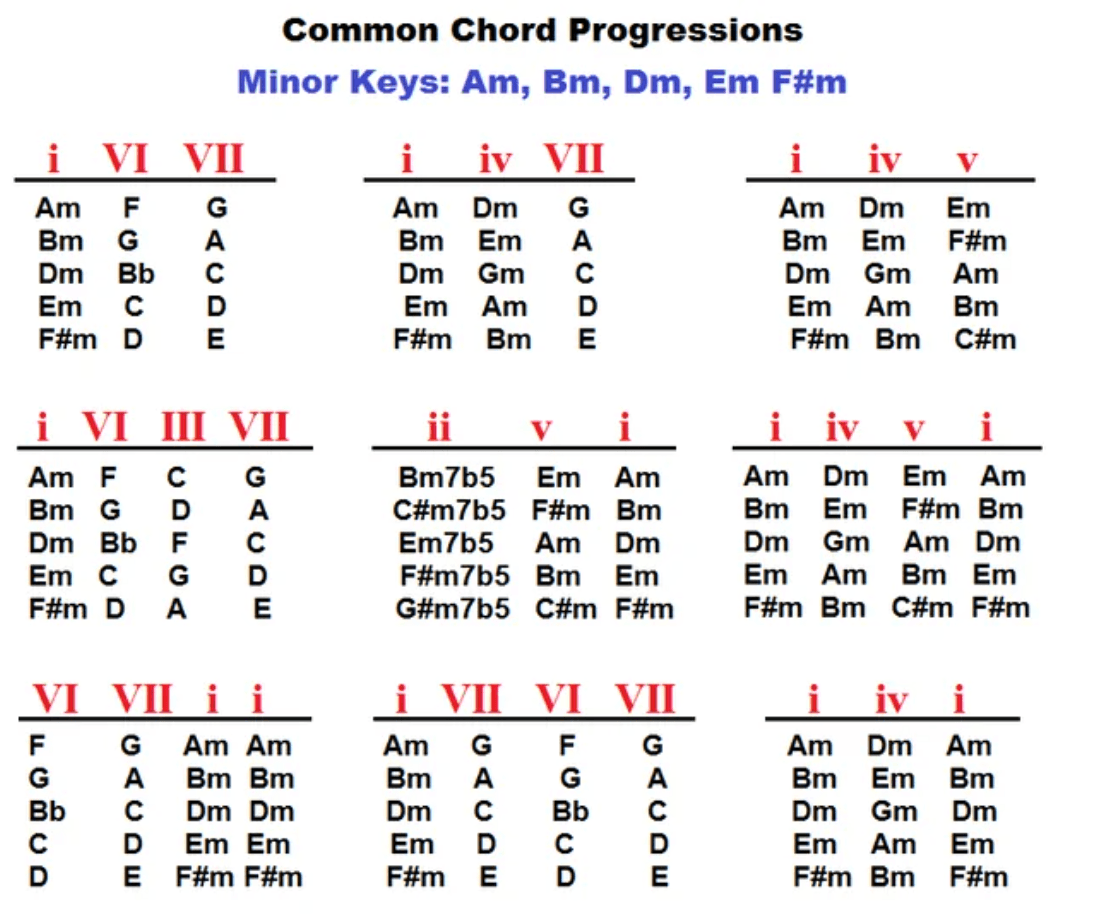Pondered over "What is AI for music?" You're in good company! The wave of AI has reshaped many industries, and the world of music is riding high on this tide.
Read on to explore how AI supports contemporary musicians, amplifying their creativity while honoring the invaluable human spirit.
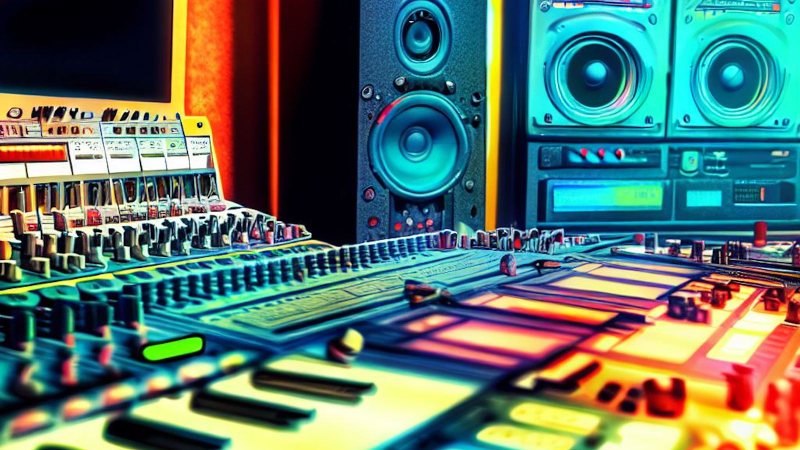
The Symphony of AI in Music
In the intricate ballet of sound and emotion that is music, a new partner has emerged: Artificial Intelligence. AI, with its vast potential and unparalleled computational abilities, is redefining the boundaries of musical creativity.
The Essence of AI in Music
At its core, AI in music refers to the application of artificial intelligence algorithms that aid in music production, composition, and various other facets of the creation process.
Envision it as a sophisticated digital music tool, ever-eager and always on standby to infuse a touch of innovation into musical endeavors.
From Playlists to Compositions
AI's reach within the music realm is expansive. Its functionalities extend beyond the rudimentary tasks and delve into more complex processes:
- Automated Playlists: Gone are the days when manually curating a playlist was the only way. AI now observes listener preferences, curates tracks based on moods, or even specific occasions, ensuring every listener finds their groove.
- Intricate Melody Creation: For those facing a composer's block or just beginning their journey, AI serves as an impeccable guide. By analyzing countless tracks across genres, AI can offer suggestions or even create melodies that resonate with a desired theme or emotion.
- Dynamic Remixes: AI’s capability to dissect tracks, understand beat patterns, and recreate them allows for dynamic remixes. It can take a classical piece and render it into a jazz version or vice versa, unveiling music in a completely new light.
- Audio Mastering: Mastering a track ensures it sounds optimal across all devices, from headphones to large speakers. AI, with its ability to quickly analyze and adjust sound frequencies, can assist musicians in this intricate task, ensuring their music resonates perfectly everywhere.
History of AI in Music
The tapestry of music is rich and diverse, and its evolution has often been intertwined with technological advancements.
Delving into the annals of musical history, we find that artificial intelligence's partnership with melodies and harmonies is a crescendo building over decades.
The Early Harmonics of Synthesis
It all commenced in the 1960s when synthesizers heralded a new era of sound production.
These electronic musical instruments didn't merely replicate existing sounds; they enabled artists to craft entirely new timbres.
It was technology's first significant imprint on the sonic landscape, paving the way for more innovations.
Digital Audio Workstations: The '90s Revolution
The '90s witnessed another quantum leap with the introduction of Digital Audio Workstations (DAWs).
These sophisticated software platforms transformed audio production, allowing for multitrack editing, mixing, and mastering.
Musicians now had a digital canvas, with tools to paint intricate auditory masterpieces.
Dawn of the AI Era
The early 2000s marked the nascent stages of AI in music. Initially, AI's involvement was modest, confined to creating basic algorithmic compositions.
These first steps, however rudimentary, hinted at the vast potential AI held for the music domain.
Today's AI Symphony
Leap to the present, and the narrative has drastically evolved. No longer just a novice entrant, AI stands as a cornerstone in the musical arena.
Its functionalities span from generating intricate melodies, assisting in audio production, to even crafting lyrics resonating with specific emotions.
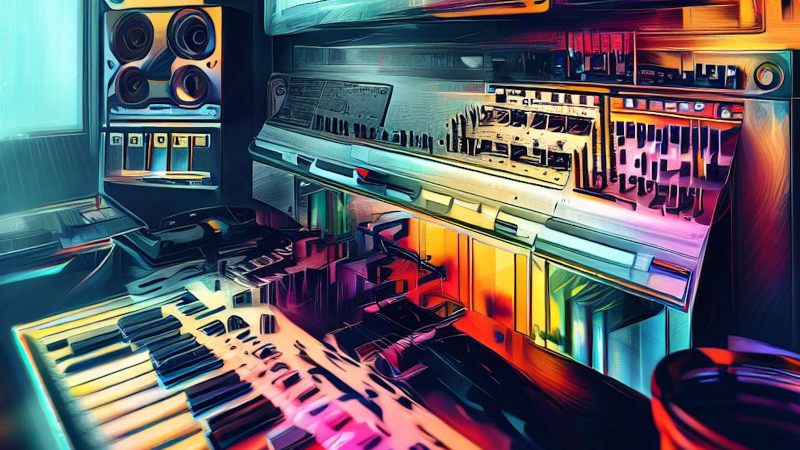
The AI Maestros: Popular AI Music Generators
Music and AI have established a symphony like none other.
In an age where technology has democratized creativity, various AI music tools have emerged as the vanguards of this digital renaissance.
These tools not only make the creation of music more accessible but also amplify its potential by blending the best of human intuition and machine precision.
1. Empress Song Idea Generator
Empress Song Idea Generator is an AI-powered musical companion designed to ignite the spark of creativity in artists.
Unlike traditional methods of ideation, this tool requires users to input a Theme/Emotion—whether it's the depths of 'Depression' or the highs of 'Euphoria'.
Upon receiving the input, the generator quickly conceptualizes song ideas, offering melodies, rhythms, and even potential lyrical themes. It's akin to having a digital brainstorming partner.
By translating emotions into tangible song ideas, it's set to be an indispensable asset for musicians, helping them bridge the gap between abstract feelings and musical expression.
Features:
- Intuitive Interface with Guided Inputs: The Empress Song Idea Generator is designed to be user-friendly. Musicians can easily input the desired type of instrument, chords, genre, and BPM to get started. This flexibility allows for a tailored experience, ensuring the generated ideas align with the artist's vision.
- Seamless Integration with Other Empress Offerings: Empress understands the holistic approach to music creation. The Song Idea Generator not only provides a foundation for your song but is also optimized to work seamlessly with other Empress tools, such as the AI bass generator, ensuring a cohesive musical journey from start to finish.
- Adaptive Learning for Personalized Suggestions: With every use, the Song Idea Generator grows smarter. By analyzing user preferences and interactions, it refines its song ideas to better match the musician's style and preferences, ensuring each recommendation feels both fresh and personally tailored.
2. Soundful
Soundful stands at the intersection of music, technology, and democratization.
This AI Music Generator platform promises not only the creation of endless tracks but also avenues for artists to monetize their work.
Built on advanced AI and machine learning algorithms, Soundful can curate tracks that mirror users' preferences. But it doesn't stop at creation.
Soundful extends its prowess to distribution, aiding artists in navigating the vast terrain of music platforms, from Spotify to Apple Music.
It's envisioned as a holistic tool—one that takes care of the creation, customization, and commercialization of music, making it a boon for both novice and seasoned musicians.
Features:
- Unlimited Creations: Musicians and content creators can craft a plethora of tracks tailored to their preferences.
- Monetization: Soundful's ecosystem allows users to sell their compositions on platforms like Spotify, Apple Music, and Amazon Music, or even license their creations for diverse media forms.
- Target Audience: Ranging from individual content creators and music aficionados to professionals from film, TV, and advertising industries, Soundful's horizon is vast and inclusive.
3. Amper Music
Simplification is at the heart of Amper Music. Crafted for those outside the traditional music creation realm—like podcasters, marketers, and businesses—Amper makes generating music as simple as a click.
Users define their genre, and Amper delivers. Key features, such as its cloud-based platform, ensure secure storage of compositions.
Furthermore, the expansive suite of musical instruments and samples guarantees a diverse palette for creators, allowing them to explore a myriad of sonic landscapes without needing technical expertise.
Features:
- Quick Composing: Leveraging AI models, Amper Music rapidly composes a variety of music, making it ideal for diverse needs like podcasts, video game soundtracks, and more.
- Cloud-Based Platform: All creations are stored on the cloud, ensuring easy access and secure storage.
- Diverse Instrumentation: The platform boasts an array of musical instruments, ensuring dynamic compositions across genres.
4. Jukedeck
Jukedeck's AI Music Composer goes a step further by offering an expansive range of customizable tracks, all sculpted using neural networks.
By analyzing vast musical datasets, the AI learns the intricacies of different styles, rhythms, and harmonies.
This learning translates into a wide array of tracks for users, all customizable in terms of tempo, duration, and mood.
Beyond its intelligent composition capabilities, JukeDeck offers a versatile licensing model, making it a cost-effective solution for diverse users seeking high-quality music.
Features:
- Comprehensive Music Analysis: Like its counterpart, Jukedeck leverages neural networks to grasp the essence of music composition.
- Adaptable Tracks: Users enjoy the flexibility of altering the tempo and duration, making the creations fit any context.
5. Musenet
Musenet is not merely another AI tool—it's a grand symphony of neural networks designed to generate compositions using up to 10 instruments and last up to four minutes.
Remarkably, Musenet wasn’t spoon-fed the art of music; it discerned patterns of harmony, rhythm, and style from vast MIDI files.
Whether you're seeking a composition reminiscent of Mozart or the Beatles, Musenet promises a symphony that resonates.
Features:
- Diverse Instrumentation: Musenet offers a rich palette of up to 10 instruments, ensuring layered and complex outputs.
- Versatile Styles: Whether it's classical pieces or modern tunes, Musenet is adept at blending myriad musical styles.
- Deep Learning Foundations: A sibling to GPT-2, its foundational architecture ensures detailed and harmonious outputs.
6. AIVA
If creating emotion-packed soundtrack music without spending countless hours mastering an instrument or software is your goal, AIVA is your answer.
Analyzing music across genres and eras, AIVA understands what makes a melody tug at heartstrings.
By applying this knowledge, it can generate compositions tailored for video games, films, or commercials.
Users can dive deep into the music creation process, mold tracks as per their requirements, and sidestep traditional music licensing hurdles, making AIVA an all-encompassing musical companion.
Features:
- Intuitive Music Creation: Powered by cutting-edge AI algorithms, AIVA creates captivating compositions tailored for a range of media.
- Flexible Editing: Users can refine and personalize the music, ensuring a perfect fit for their projects.
- Range of Styles: AIVA stands out with its versatile styles and genres, all accessible with simple preset selections.
7. Boomy
Boomy AI epitomizes the seamless blend of simplicity and innovation in music creation.
By taking user preferences into account, Boomy crafts tracks that align with individual tastes.
But it's not just about generating music; it's about refining and personalizing it.
Boomy’s platform lets artists tweak and adjust, ensuring the final piece truly resonates.
Additionally, with options to share and monetize compositions on platforms like Spotify or YouTube, Boomy transforms from a mere tool to a launchpad for budding artists.
Features:
- Personalization at its Best: After gauging your musical taste, Boomy's AI crafts a range of tracks. You can then select, edit, and align the music to your vision.
- Monetization and Community: Boomy goes beyond mere creation—it offers a platform to share your music with the world. Users can monetize their creations on platforms like Spotify and YouTube and even join a global community of artists using Boomy.
- User Experience: Making music is a breeze with Boomy, even for novices. With continuous learning from user feedback, Boomy constantly refines its offerings.
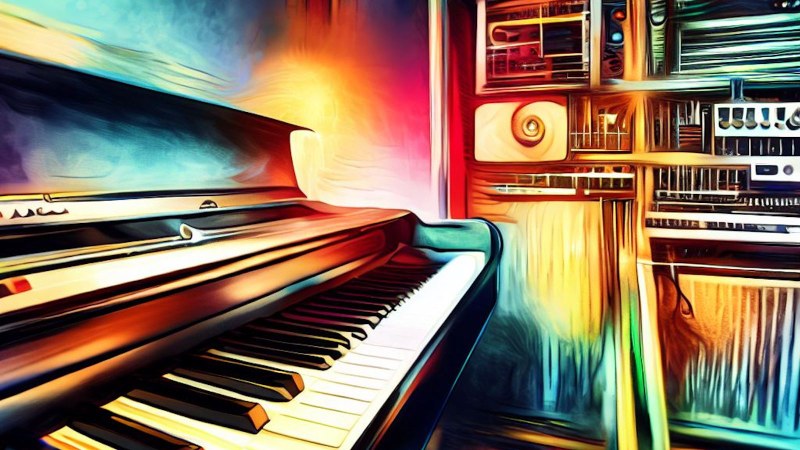
Introducing: Empress AI Music Tools
In an ever-evolving musical landscape, technology consistently paves new avenues for creativity.
Within this realm, AI music tools have carved a significant niche.
Yet, among the myriad of options available, the Empress AI Music Tools emerges as a beacon of innovation and comprehensiveness.
This platform's tools cater to a vast spectrum of musical needs, ensuring that every facet of your composition resonates with professional flair.
1. Melody Mind
Melody Mind, the AI melody generator, promises a user experience that's both intuitive and rewarding.
By merely inputting the desired instrument, chords, genre, and bpm, creators can instantly get a melody that fits their vision.
Picture the scene: you're working on an indie song and need that signature guitar tune; Melody Mind has you covered.
Or perhaps you're crafting a meditation track and crave a tranquil flute melody; once again, this tool proves indispensable.
2. Lyric Lab
Navigating the vast landscape of words can be daunting. Enter Lyric Lab, the AI lyrics generator that streamlines this process.
Users need only specify the genre—such as the imaginative realm of "Futuristic Sci-Fi"—and the tone or style, which could range from "ominous" to "euphoric".
The result? Perfectly crafted lyrics that resonate with the chosen theme, making that dystopian ballad or sci-fi anthem a reality.
3. Chord Candy
Chords form the backbone of any musical piece, and Chord Candy ensures they are nothing short of perfect.
This AI chord generator simplifies the intricate process of chord progression.
Whether you're working with a piano in the key of C for a pop track at 120 bpm, or a ukulele piece in G major for a calming ambient soundscape, Chord Candy delivers the precise progression to elevate your track.
4. Bass Brain
Step into the world of rhythm and resonance with Bass Brain.
Designing bass lines becomes a breeze with this tool.
Whether it's the profound rumble of a stand-up bass for a jazz piece or the electrifying pulse of a synth bass for an EDM banger, all you need is to input the type of bass, chords, genre, and bpm.
The AI then crafts a bass line that perfectly complements your composition.
5. Drums De Dior
Rhythm is the heartbeat of music, and Drums De Dior ensures your song's heart beats strong and true.
Tailored to your song's genre and bpm, this AI crafts beats that not only fit but define your track.
Be it the rapid intensity of a rock song at 140 bpm or the languid pace of a lo-fi track at 70 bpm, expect drum beats that compel every listener to move.
AI Music Marketing Tools: Elevating Music Promotion to an Art
The digital age has revolutionized the music industry, offering a plethora of platforms for artists to showcase their talent.
Yet, the increased accessibility has also intensified competition.
As musicians churn out soulful melodies, ensuring that their creations reach their desired audience becomes equally paramount.
This is where the Empress AI Marketing Tools come into play, bridging the gap between the artist and their potential fanbase.
1. Crafted Ad Descriptions: Making Every Word Count
Advertising in the music sector goes beyond mere promotion; it's a testament to an artist's brand.
The Empress Copy Chorus tool offers musicians a unique advantage.
Instead of generic blurbs, artists get tailored ad descriptions aligning with their genre and unique style.
It ensures that every promotional content piece resonates with the target audience, amplifying engagement and reach.
2. Caption Composer: Turning Visuals into Narratives
Album covers, music video stills, or behind-the-scenes shots—every visual tells a story.
Empress’s Caption Composer taps into this narrative.
It crafts captions that entice, fostering a deeper connection between the artist and their audience on social media platforms.
3. Email Generator: Personal Touch in Digital Outreach
Engaging emails can pave the way for countless opportunities.
Empress Melody Mail ensures that every email sent by the musician isn't just another message in the recipient's inbox.
Tailored, brand-aligned, and evoking genuine interest, these emails foster stronger bonds and unveil avenues previously unexplored.
4. Finding the Perfect Pitch on Twitter: Making Every Character Count
The brevity of Twitter poses a unique challenge.
Empress Twitter Weaver rises to this challenge by ensuring every tweet is not just articulate but memorable.
By analyzing music, audience preferences, and trending topics, it crafts tweets that not only resonate but linger in the audience's memory.
5. SEO with YouTube and Google Tags: Standing Out in the Crowd
Online visibility can make or break an artist's success. Empress's SEO tools take a holistic approach to online promotion.
Beyond mere tagging, they delve deep into the musician's identity, understanding their essence, and target demographic.
The result? Crafted YouTube descriptions and Google SEO tags that attract the genuinely interested, propelling organic growth.
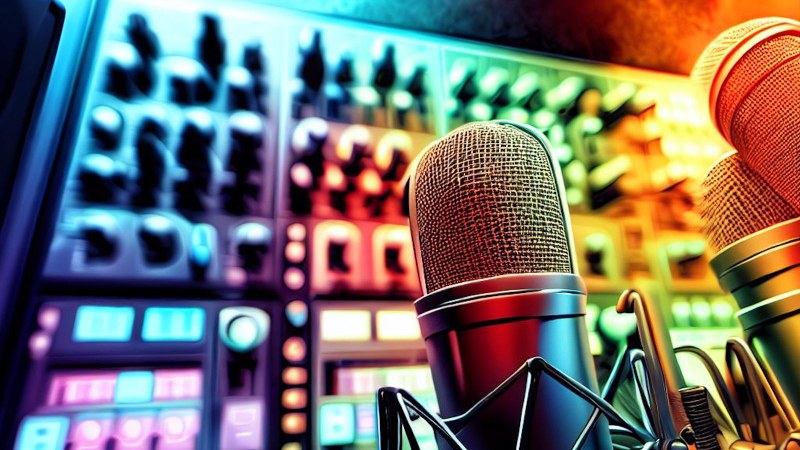
Empress: Your Partner in Creation
Elevate your audio production journey. Why limit yourself when you have tools that amplify your creativity? Use Empress – where the marriage of audio AI tool and human creativity births chartbusters.
FAQs:
Q1: How do I get started with an AI music tool?
Start with a clear idea of what you want, input the parameters, and let the AI handle the rest.
Q2: Is musical knowledge necessary to use AI music tools?
These tools are designed for both novices and experts.
Q3: How accurate is AI in capturing the genre and mood?
While AI is precise, the final touch and finesse of a human artist make the composition holistic.
Q4: Can AI create original compositions?
Absolutely, but it's always beneficial to add your unique twist.
Q5: Are there any copyright issues with AI-generated music?
It varies by platform, but always ensure you have the rights to use and distribute the generated content.
Follow the future of music with Empress. Check out our blog to learn how you can effectively use these AI music tools.
